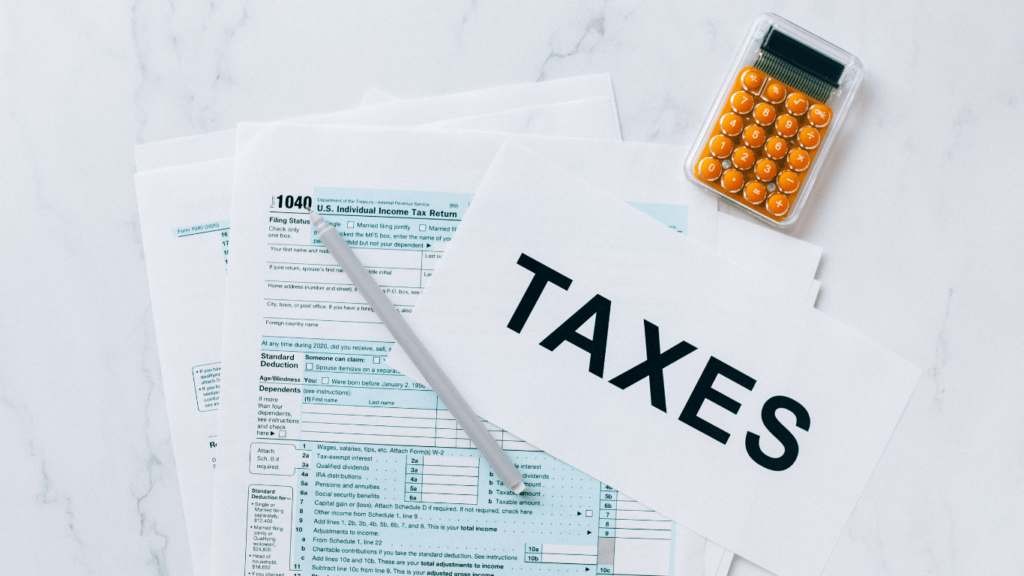Winning the lottery is a dream for many, but the excitement can quickly turn into confusion when tax laws come into play. As we step into 2025, new legislation is shaking up how lottery winnings are taxed, and it’s crucial for winners to understand these changes.
Navigating this financial windfall isn’t just about celebrating; it’s about making informed decisions that can impact your future. I’ll explore how the latest tax laws affect lottery winners, shedding light on what you need to know to maximize your winnings.
From federal taxes to state regulations, understanding these rules can help you avoid unexpected pitfalls. Whether you’re a lucky winner or just curious about the implications, this guide will provide valuable insights into managing your newfound wealth in the evolving tax landscape.
Overview of Tax Laws in 2025
In 2025, significant changes in tax legislation affect lottery winners across the United States. Understanding these updates is crucial for effective financial planning and wealth management.
Key Changes in Tax Legislation
- Increased Top Tax Rates: The federal government raised the top income tax rate from 37% to 39.6% for individuals earning over $500,000. This adjustment directly impacts high-earning lottery winners.
- Changes in Deductions: Standard deductions have increased to $15,700 for single filers and $31,400 for married couples. This change can offset taxable income, benefiting winners when calculating their net proceeds.
- State Tax Considerations: Many states have adjusted their tax brackets, affecting taxation on lottery winnings. For example, states like California and New York require higher state tax percentages, which can reach up to 13.3% and 8.82% respectively.
- Capital Gains Tax Updates: With capital gains tax rates rising for higher income brackets, winners considering investment options may face greater tax liabilities on their returns.
Implications for Lottery Winnings
- Immediate Withholding: Lottery commissions now withhold 25% of winnings for federal taxes up front. This withholding can impact the initial cash flow for winners.
- Long-term Tax Planning: Winners must consider their overall income for the year. A sudden influx of lottery winnings can push individuals into a higher tax bracket, significantly increasing tax obligations.
- Investment Strategies: Lucky winners may explore investment options and tax-free accounts like Roth IRAs. Taking advantage of such accounts can aid in managing tax burdens over time.
- Consultation with Professionals: Winners are encouraged to consult tax professionals for personalized strategies. Understanding the nuances of tax laws helps maximize winnings while minimizing liabilities.
Taxation on Lottery Winnings
Understanding taxation on lottery winnings is crucial for effective financial planning. The latest tax laws can significantly impact the net income of lottery winners in 2025.
Federal Tax Rates for Lottery Winners
- Increased Federal Tax Rate – The top federal income tax rate is now 39.6% for individuals earning over $500,000, impacting lottery winners as their earnings qualify as ordinary income.
-
Tax Withholding & Bracket Impact – A 25% federal tax is withheld immediately upon payout, and winners may face higher effective tax rates as their income places them in elevated tax brackets.
State-Specific Tax Laws
State tax laws also play a key role in determining the overall tax burden. States like California and New York impose substantial state tax percentages on lottery winnings, ranging from 8% to 13%. Some states, such as Florida and Texas, do not tax lottery winnings.
Winners must consult state-specific regulations, as local tax implications can significantly alter the final amount received. Understanding these nuances helps manage financial expectations effectively.
Deductions and Credits
Understanding deductions and credits is crucial for lottery winners in 2025. These tax strategies can significantly affect the overall tax burden, allowing winners to retain more of their winnings.
Common Deductions for Lottery Winners
Lottery winners can benefit from several common deductions.
- Itemized Deductions: I can deduct eligible expenses like mortgage interest, charitable contributions, and medical expenses. These can help lower taxable income.
- State and Local Taxes (SALT): I can deduct certain state and local taxes paid, capped at $10,000, which includes property taxes. This can be relevant depending on state tax laws.
- Miscellaneous Deductions: In some cases, costs related to gambling, such as losses, can offset winnings. Documenting these expenses is essential for claiming them accurately.
Eligibility for Tax Credits
Tax credits can provide additional savings for lottery winners.
- Earned Income Tax Credit (EITC): Although primarily for low-to-moderate-income earners, I might qualify if my adjusted gross income stays below a specific threshold.
- Child Tax Credit: If applicable, I can receive a credit for each qualifying child, which further reduces the tax owed.
- Other Credits: I should explore available education credits, energy efficiency credits, or any state-specific credits that may apply, as they can positively impact my tax situation.
By leveraging these deductions and credits, I can optimize my tax position and enhance the benefits of winning a lottery.
Strategies for Managing Tax Obligations
Managing tax obligations is crucial for lottery winners navigating the complexities of new tax laws in 2025. Implementing effective strategies can help preserve winnings and reduce tax burdens.
Financial Planning Tips
- Budget Wisely: Create a budget that accounts for taxes, living expenses, and savings goals. This proactive approach assists in managing cash flow effectively.
- Set Aside Funds for Taxes: Allocate a portion of winnings to cover potential tax liabilities. Aim for at least 30% to account for federal and state taxes.
- Diversify Investments: Consider a mix of investment vehicles. Stocks, bonds, and real estate provide opportunities for growth while mitigating risks associated with easy accessibility to cash.
- Utilize Tax-Free Accounts: Explore tax-free options like Roth IRAs for retirement savings. This can provide tax-free growth and withdrawals in the future.
- Keep Detailed Records: Maintain thorough documentation of all income sources, expenses, and investments. This information simplifies tax preparation and supports potential deductions.
Consulting with Tax Professionals
- Seek Specialized Advice: Consult a tax professional specializing in lottery winnings and high-income earners. This expertise ensures compliance with current tax laws.
- Understand State-Specific Regulations: Different states impose varied tax rates on lottery winnings. A tax advisor provides insights into local laws impacting net income.
- Review Tax Strategies: Discuss deductions and credits that apply to lottery winnings. A professional can help identify eligible opportunities to minimize tax liability.
- Plan for Future Tax Implications: Analyze how current tax decisions affect future tax situations. A tax expert can provide strategies that account for potential changes in legislation.
- Annual Reviews: Schedule regular meetings with tax professionals for ongoing guidance. This ensures tax planning adapts to financial changes and any new laws.
Implementing these strategies can enhance tax management for lottery winners while providing greater financial security.





